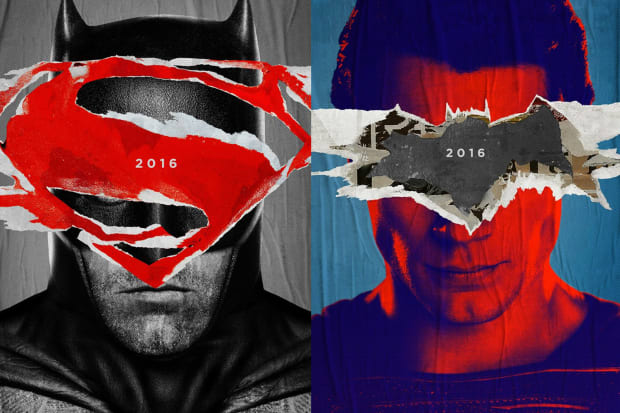For the last decade and change, Warner Bros (T) has been the Goofus to Disney’s (DIS) Gallant.
Let’s leave aside Disney’s approach to the Star Wars franchise it purchased in 2012 (uneven at best) and Warner Bros’ Harry Potter “Wizarding World,” franchise (borderline disastrous), and concentrate on the two companies’ superhero franchises.
There’s been no greater source of blockbuster films in the past decade than superhero fare.
Disney and Warner Bros are lucky that they have the rights to the two biggest comic book franchises. But they’ve handled the properties very differently.
Disney’s Marvel Cinematic Universe generally works like a well-oiled machine, regularly delivering some of the year’s biggest hits, earning raves from fans and generally solid reviews.
There’s always going to be critics that flat-out hate superhero franchise films, but that just comes with the territory.
In comparison to the smooth sailing of the MCU, Warner Bros’s DC films have at best been a mixed bag.
For every well-received hit like “Aquaman” or “Wonder Woman,” there’s a critical reviled fiasco like “Suicide Squad,” or director Joss Whedon’s treatment of the actors on “Justice League,” which actor Ray Fisher says was abetted by DC executives.
But DC and Warner Bros.' new owners are well aware there’s a problem, and are now plotting a drastic overhaul of DC Entertainment.
Warner Bros New Owners Want To Hit The Reset Button
Last year Warner Bros.’ corporate owner, AT&T, sold off WarnerMedia to Discovery (DISCA), which owns the Discovery Channel, Animal Planet, TLC, the Food Network, HGTV, and the Travel Channel.
The deal is expected to give HBO Max a major boost of content by combining it with Discovery+ into one massive platform that can directly compete with streaming giants such as Netflix (NFLX) and Disney +.
Part of the new owners’ HBO Max plans call for more superheroes on the service.
The $43 billion deal for Discovery to buy WarnerMedia has now finally closed, and David Zaslav, the chief executive of the combined company, has reportedly begun planning a drastic shake-up of the DC properties, according to Variety.
Discovery raised $30 billion in “mega debt” to fund the deal, and Zaslav reportedly believes that “the success of the merger, one that has left the company highly leveraged, will rest in no small part on unlocking the full potential of the DC Comics universe of characters.”

What Does Discovery Have Planned For The DC Universe?
After the mixed reception to the 2016 film “Batman v Superman: Dawn of Justice” and the outright box office failure of 2017’s “Justice League,” DC Entertainment president and chief creative officer Geoff Johns stepped down and was replaced by Walter Hamada.
Hamada pivoted from the Marvel-like approach of a shared cinematic universe to making DC films that weren’t attached to a greater franchise, earning hits with 2019’s “Joker” and this year’s mammoth smash “The Batman,” which has earned almost $361 million this year so far.
But while those were big hits, the “try anything” approach also confused fans, and Discovery reportedly believes the company “lacks a coherent creative and brand strategy.”
Zaslav is reportedly looking for someone to fill the role of Marvel President Kevin Feige, generally seen as the guiding force of the Marvel Cinematic Universe, in order to have a more steady, cohesive approach.
Among the goals for the company is revitalizing Superman, and better utilizing secondary DC characters, the way Marvel has scored hits with “Moon Knight” and “Ant-Man.”
It’s also important for DC to create more spin-off material for HBO Max, following the success of the John Cena vehicle “Peacemaker.”
It’s too soon to say what the future of the DC Universe will look like.
Will the new boss attempt a soft reboot in which they keep what works, such as Jason Momoa’s Aquaman and Gal Gadot’s Wonder Woman, while fixing what doesn’t? And would anyone miss Jared Leto’ take on The Joker?
Or will DC decide to wipe the slate clean and start over? Or perhaps use the success of “The Batman” as a new starting point?
DC has plenty of films either ready to go or in development, such as “Aquaman and the Lost Kingdom,” a third “Wonder Woman” film and the Dwayne Johnson franchise “Black Adam.”
These films are far enough along in production that they aren’t expected to be impacted by the merger, and will probably be used to buy the new company time while it figures out what’s next.
But after that, it’s anyone’s guess about what’s next, besides the obvious fact that no matter what happens, there will always be more Batman films.







